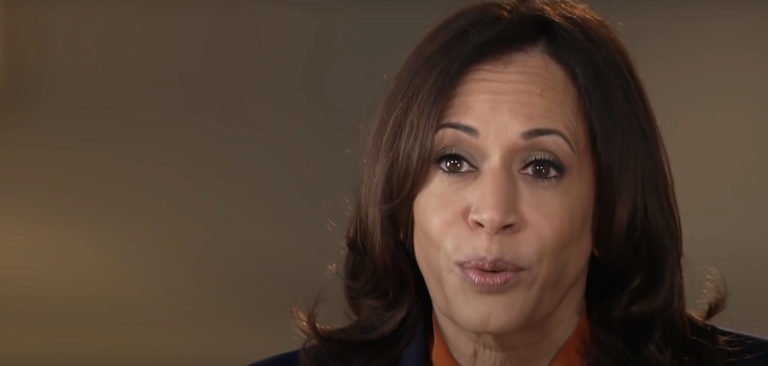In July 2019, the Washington Post published a feature on then-presidential candidate Kamala Harris and her sister which opened with a bizarre statement from Harris where she compared the challenges of the campaign trail with a prisoner begging for food and water:
“It was the Fourth of July, Independence Day, and Kamala Harris was explaining to her sister, Maya, that campaigns are like prisons.
She’d been recounting how in the days before the Democratic debate in Miami life had actually slowed down to a manageable pace. Kamala, Maya and the rest of the team had spent three days prepping for that contest in a beach-facing hotel suite, where they closed the curtains to blot out the fun. But for all the hours of studying policy and practicing the zingers that would supercharge her candidacy, the trip allowed for a break in an otherwise all-encompassing schedule.
“I actually got sleep,” Kamala said, sitting in a Hilton conference room, beside her sister, and smiling as she recalled walks on the beach with her husband and that one morning SoulCycle class she was able to take.
“That kind of stuff,” Kamala said between sips of iced tea, “which was about bringing a little normal to the days, that was a treat for me.”
“I mean, in some ways it was a treat,” Maya said. “But not really.”
“It’s a treat that a prisoner gets when they ask for, ‘A morsel of food please,’ ” Kamala said shoving her hands forward as if clutching a metal plate, her voice now trembling like an old British man locked in a Dickensian jail cell. “‘And water! I just want wahtahhh….’Your standards really go out the f—ing window,’ Kamala burst into laughter.”
Not only was the comparison controversial because running a political campaign is nothing like being jailed but Harris’ record as a prosecutor made it even more staggering. She has jailed almost two thousand people for marijuana violations, jailed parents over truancy, and laughed about it.
Yet within the last month, after Harris had been inaugurated as Vice President of the United States, the Post quietly deleted this opening from the article and replaced it with a much more favorable opening about Harris and her sister.
Reason reporter Eric Boehm covered the removal of the original opening and remarked that “its disappearance suggests something about the Post, and about the way traditional political media are preparing to cover Harris now that she’s one heartbeat away from the presidency.”
When Reason asked the Post why the feature was updated and if it could provide other examples of political features being updated to remove details that show officials in an unflattering light, the Post stated that as part of an online series rolled out before President Joe Biden’s and Harris’ inauguration, “we repurposed and updated some of our strong biographical pieces about both political figures.”
The Post added that both features had been “updated with new reporting, as noted online, using the existing URL” and that “the original story remains available in print.”
But after Reason published Boehm’s article about this stealth edit, the Post started to face heavy backlash on social media and subsequently restored the original version of the Harris feature.
“We should have kept both versions of the story on the Post’s site (the original and updated one), rather than redirecting to the updated version,” the Post told Reason. “We have now done that, and you will see the link to the original at the top of the updated version.”
Despite the original version now being restored, many Twitter users remained skeptical of the circumstances surrounding this stealth edit.
“How many other times has the Washington Post done stuff like this?,” New York Post reporter Jon Levine tweeted. “Who made the call? Was WashPo contacted by Kamala Harris’ office on this before the change was made?”
Boehm added: “A good and timely change by the Post! Hopefully this was merely an oversight and not an indication of how they will cover Harris in the future!”










